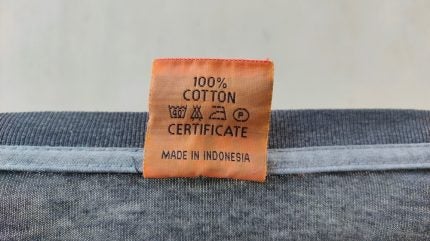
Local news site Tempo.Co reported 150,000 job losses in 2023 at large and medium-sized factories alone, after the closure of 21 textile factories in Indonesia, with a further 31 sites said to be “at risk”.
The Indonesian Fibre and Filament Yarn Producers Association’s (APsyFI) chairman Redma Gita Wirawasta told Tempo.Co that textile factories in the country are also running at 72% of their capacity thanks to the downturn.
Since the Covid-19 pandemic, Wirawasta said Indonesia has seen an increase in the volume of textiles imported from China.
APsyFI’s Wirawasta also cited Indonesia’s ASEAN-China Free Trade Agreement (2012) as increasing this trend, as well as the ongoing disruption caused by the war in Ukraine.
Local industry body Ikatan Pengusaha Konveksi Berkarya (IPKB) has called the increase in Chinese imports “excessive”, with 60% of its members, who are small and medium-sized businesses, no longer operating. He said those still open are operating at less than 50% capacity.
IPKB’s chairman Nandi Herdiaman said: “The domestic market, both offline and online, is being taken over by imported products with unreasonable prices .We are confident that if the domestic market is protected, with at least 70% controlled by local products, Indonesian SMEs will thrive.”
APsyFI has also cited concerns around the weakening of Indonesia’s Rupinah currency against the US dollar.
General chair of the Indonesian Employers’ Association Shinta Kamdani said: “The textile and garment industry is already weak due to the decline in market share in the domestic market and the decline in the competitiveness of large exports. The depreciation of the rupiah is increasingly putting pressure on this sector.”
In June 2024, Indonesia’s viscose fibre industry was said to be experiencing solid growth, driven by a shift in global consumption patterns and significant investments in domestic production capacity.
In February 2024, the Bangladesh Garment Manufacturers and Exporters Association (BGMEA)’s President Faruque Hassan met with the Indonesian Ambassador to Bangladesh, H.E. Heru Hartanto Subolo, to enhance bilateral trade, particularly in the apparel and textile sector.



